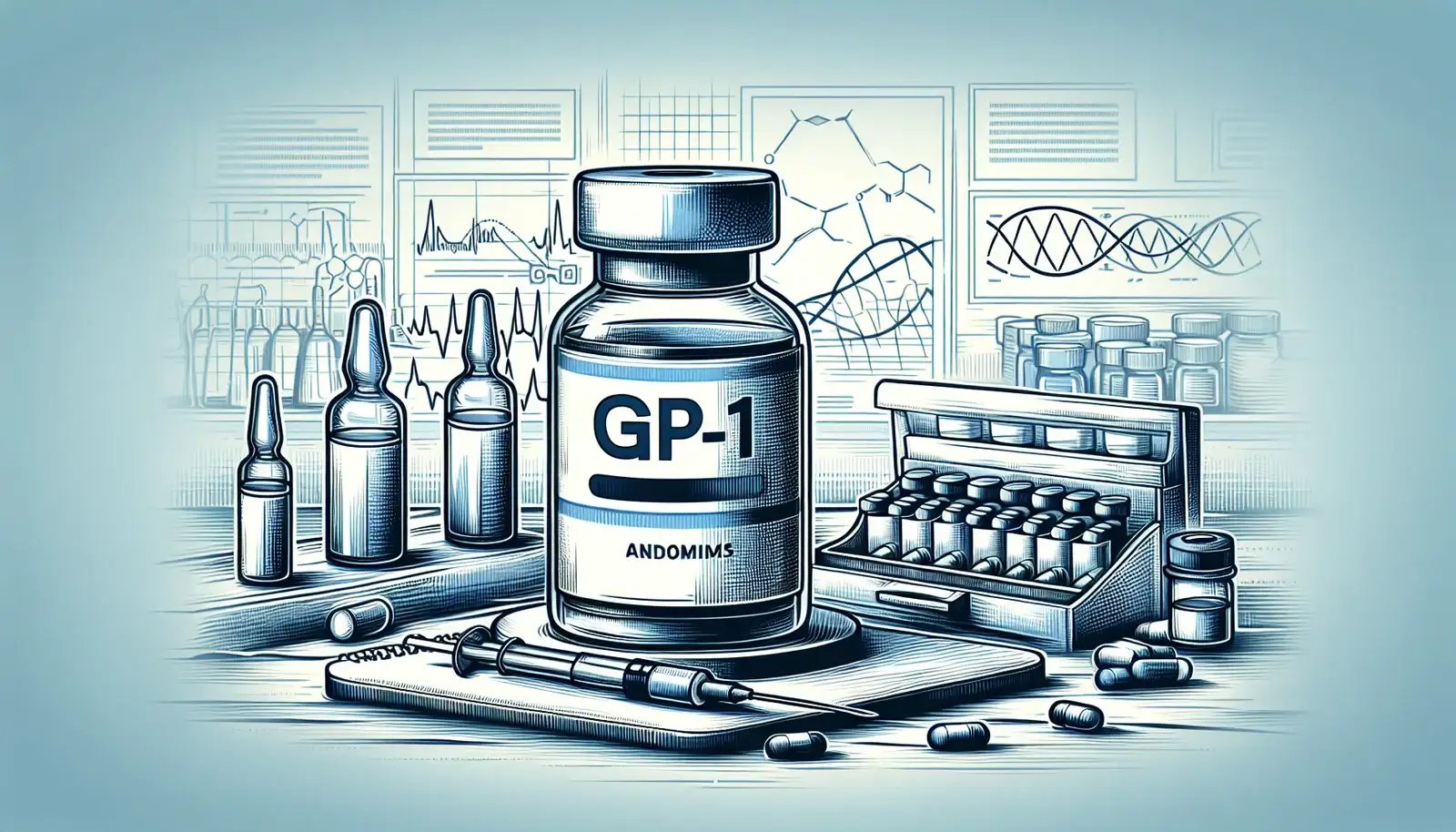
In exploring the effectiveness of new GLP-1 agonist drugs like Zepbound, Wegovy, and Mounjaro for obesity, we delve into the impressive initial weight loss these medications help achieve and the complex challenges that arise when individuals stop taking them. Jonathan Meyers’ journey, like many others, highlights the stark reality of regaining weight once these drugs become unavailable due to cost, shortages, or side effects. Clinical studies and patient experiences reveal a joint struggle to maintain weight loss without the support of these medications, underscoring the importance of lifestyle changes that alone are often insufficient. Experts recommend personalized medical plans to navigate these transitions, addressing both the biological relapse and the emotional toll that can accompany discontinuation. Do we know how effective obesity drugs are, especially considering what happens when we stop taking them? Let’s dive deep into new GLP-1 agonist drugs like Zepbound, Wegovy, and Mounjaro and explore their effectiveness, the challenges when people cease using them, and their overall impact on patients trying to manage their weight.
Understanding GLP-1 Agonist Drugs
What Are GLP-1 Agonist Drugs?
GLP-1 agonist drugs are a type of medication designed to help with weight loss. These drugs mimic the glucagon-like peptide-1 (GLP-1), a hormone regulating appetite and blood sugar levels. When we take these drugs, they help to reduce our appetite, leading to fewer calories consumed and, ultimately, weight loss.
Examples of GLP-1 Agonists
Some of the most well-known GLP-1 agonist drugs include:
- Zepbound
- Wegovy
- Mounjaro
These medications have been gaining traction due to their effectiveness in promoting significant weight loss. But what happens when we stop using them?
Weight Regain After Stopping Medication
Why Do We Regain Weight?
When people discontinue GLP-1 agonist drugs, they often experience weight regain. This is primarily due to the return of appetite and eating habits previously managed by the medication. Our bodies revert to their natural state, driven by biological and hormonal factors that make weight management challenging without ongoing medication support.
Factors Leading to Discontinuation
There are several reasons why people might stop taking these drugs:
- Cost: The medication can be expensive, and insurance coverage may vary.
- Shortages: Supply issues can make it difficult to access the medication consistently.
- Side Effects: Some people experience side effects that prompt them to cease usage.
- Life Events: Situational changes, such as pregnancy or other health concerns, may require discontinuation.

Patient Experiences: The Case of Jonathan Meyers
Jonathan’s Success with the Drugs
Take Jonathan Meyers, for instance. He successfully lost a substantial amount of weight using these drugs. For him, the medication was a life-changer. He felt healthier and more energetic, and his self-esteem improved.
The Struggle When Drugs Aren’t Available
However, Jonathan faced a significant challenge when the medication became unavailable. He feared regaining the weight he had worked so hard to lose. Jonathan’s story is not unique; many individuals share similar experiences, achieving success on the drugs but struggling to maintain their weight loss afterward.
Navigating Supply Issues
Impact of Drug Shortages
Drug shortages can be a big hurdle. They force people to find alternative solutions such as:
- Compound Pharmacies: Some turn to these pharmacies to create the needed medication.
- Dose Tapering: Others may try tipping their doses to stretch their supply.
Risks with Alternatives
They seek alternatives like compound pharmacies, while a potential solution comes with risks. The quality and dosage may not always be consistent, leading to uncertainty about the effectiveness and safety.

Clinical Studies on Weight Regain
Key Findings
Research consistently shows that most individuals regain a significant portion of the weight they lose once they stop taking the medication. In many studies, only a tiny fraction of patients maintain their reduced weight long-term without ongoing pharmacological support.
Detailed Study Outcomes
Here’s a simplified look at some study outcomes regarding weight regain:
| Study | Duration (months) | Weight Lost During Study (%) | Weight Regained Post-Treatment (%) |
|---|---|---|---|
| Study A | 12 | 15 | 10 |
| Study B | 24 | 20 | 18 |
| Study C | 6 | 10 | 8 |
These results highlight the challenging reality that maintaining weight loss often requires continuous medication.
Importance of Lifestyle Factors
Role of Diet and Exercise
Experts agree that lifestyle changes, such as improved diet and regular exercise, are crucial for weight management. However, for many dealing with obesity, these changes alone are often insufficient. Obesity is a complex condition with biological, psychological, and social factors playing a role.
Combining Lifestyle and Medication
The most effective approach combines medication with lifestyle adjustments. This dual strategy can enhance weight loss outcomes and support maintenance, even if the medication needs to be discontinued.

Societal Phenomenon: Misuse for Cosmetic Weight Loss
Rising Popularity
The effectiveness of these medications has not gone unnoticed. They’ve gained considerable attention, sometimes used for cosmetic purposes rather than medical necessity.
Ethical Concerns
Using these drugs for cosmetic weight loss raises ethical questions, especially during times of shortage. It’s essential that those who need the medication for health reasons can access it without undue competition for resources.
Biological Relapse and Hunger
Biological Drivers of Obesity
When we stop taking GLP-1 agonist drugs, the underlying biological and hormonal drivers of obesity resurface. The body’s natural hunger signals return, making it challenging to maintain reduced food intake.
Impact on Appetite
The perpetual sense of hunger can be discouraging and lead to overeating, thereby causing weight regain. This biological relapse underscores the importance of medical intervention in managing chronic obesity.
Emotional and Psychological Impacts
Anxiety and Distress
The emotional toll of stopping these medications can be significant. Patients often experience anxiety and distress, fearing weight regain and a return to the health issues they faced before starting the medication.
The Psychological Battle
The psychological impact should not be underestimated. Continuous support from healthcare providers, family, and peer groups can help alleviate these concerns and promote a healthier outlook.
Long-Term Use Considerations
Necessity of Continuous Use
For many, continuous use of GLP-1 agonist drugs may be necessary to maintain weight loss. However, there are instances where transitioning off the drug is unavoidable due to other medical conditions or life changes.
Strategies for Tapering Off
If discontinuation is necessary, a well-structured plan is essential. This plan should include:
- Gradual Reduction: Tapering the dose slowly rather than stopping abruptly.
- Lifestyle Adjustments: Continued focus on diet and exercise.
- Regular Monitoring: Frequent check-ins with healthcare providers to track progress and make necessary adjustments.
Recommendations for Transitioning Off the Drugs
Personalized Medical Plans
A personalized plan created in consultation with medical professionals is crucial. These plans should consider individual health profiles, lifestyle habits, and psychological needs.
Dietary Counseling
Dietary counseling can play a pivotal role in managing weight post-medication. Nutritionists can offer tailored advice that helps maintain a balanced diet and manage caloric intake.
Ongoing Support
Lastly, ongoing support from healthcare providers, support groups, and family members is critical. It helps address emotional and psychological challenges while ensuring patients stay on track with their health goals.
Conclusion
The effectiveness of GLP-1 agonist drugs for weight loss is undeniable, offering substantial benefits for those struggling with obesity. However, the challenges that arise when discontinuing these drugs highlight the need for a comprehensive approach to weight management. Combining medication with lifestyle changes, personalized medical plans, and emotional support can provide better outcomes for long-term weight maintenance. As we navigate the complexities of obesity treatment, it remains clear that there’s no one-size-fits-all solution, and a multifaceted approach is essential for sustained success.
